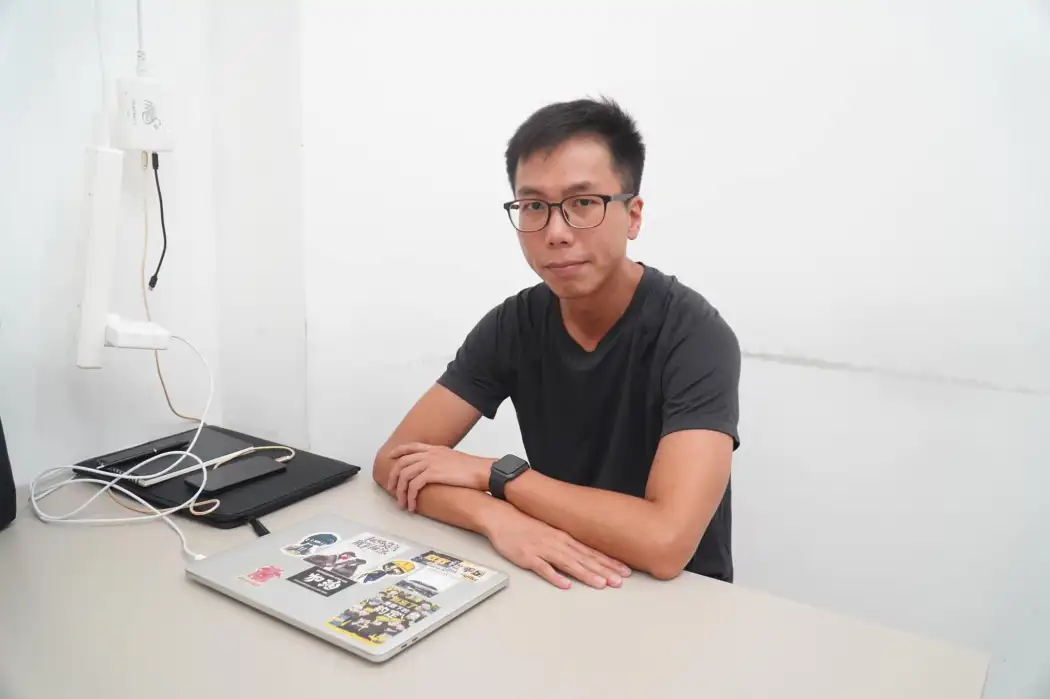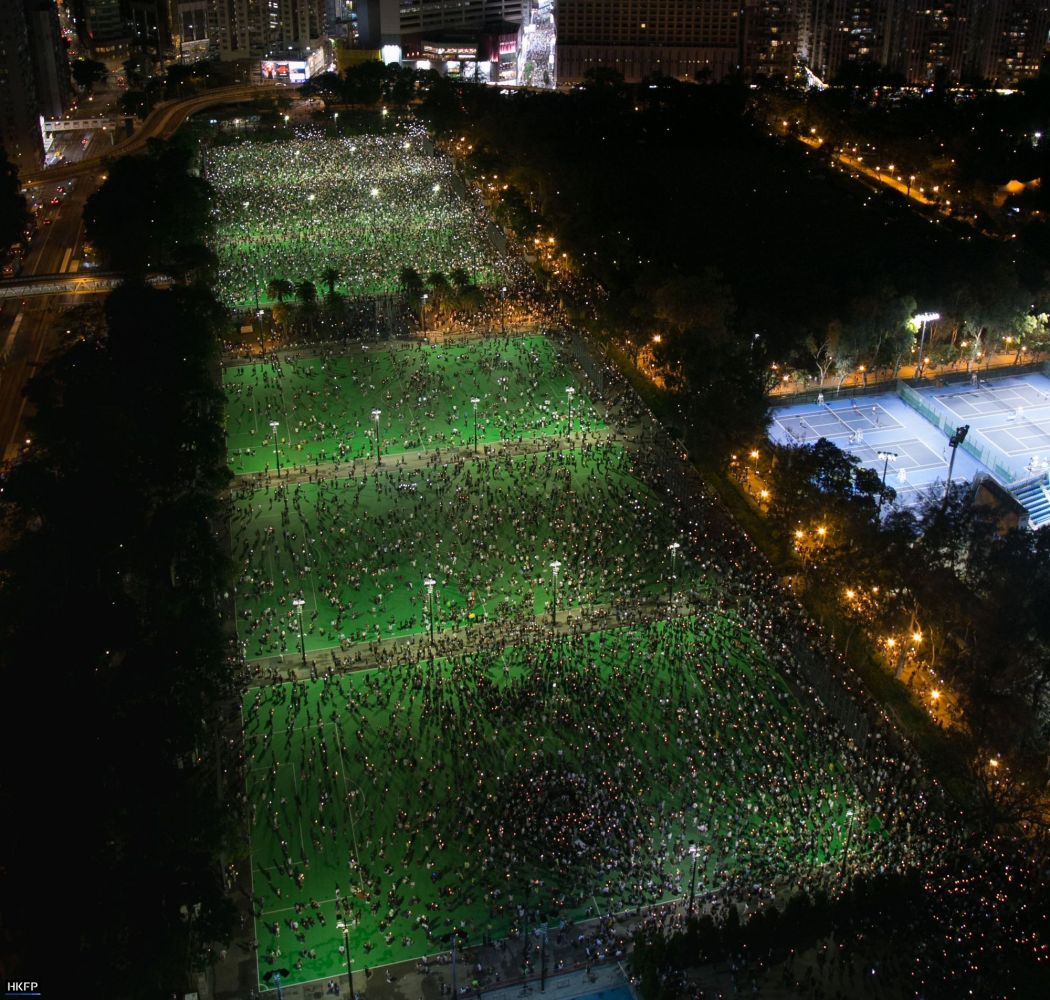A former standing committee member of the now-defunct organiser of Hong Kong’s annual Tiananmen Massacre vigil has pleaded guilty to not complying with a national security police data probe. He was sentenced to three months in jail on Wednesday.
Ex-standing committee member of the Hong Kong Alliance in Support of Patriotic Democratic Movements of China Simon Leung appeared in front of Acting Chief Magistrate Peter Law at West Kowloon Magistrates Courts.

The court clerk read out Leung’s charge, and asked what his plea was: “He who has a mind to beat his dog will easily find a stick, [I] plead guilty,” said Leung.
Law asked Leung’s representative to confirm his plea, as the judge wanted to make sure that the former district councillor was not “forced” to admit guilt.
Leung then pleaded guilty again, and the prosecution read out the amended summary of facts, agreed by the activist.
Law eventually decided to sentence Leung to three months in jail, saying that – unlike other offences – Leung refused to comply with the police request on purpose.
Leung is currently serving a nine-month jail sentence for participating and inciting others to take part in last’s year’s banned Tiananmen Massacre vigil.

Wednesday’s sentencing was the first under the new offence. Leung will serve one month of his three-month sentence concurrently with his current jail term, meaning he will serve 11 months behind bars.
The city’s national security police made a data request to the Alliance in August, accusing them of working as an “agent” for foreign entities.
Leung, along with four other standing committee members of the Alliance, including former vice-chairperson Chow Hang-tung, refused to comply with the police request in September.
Tsui Hon-kwong, who was one of the five defendants, also sought to file a judicial review, asking the court to declare that the Alliance was not a foreign agent.
The group initially pleaded not guilty to the charge in September, after the court rejected the prosecution’s application to adjourn the case.
The Tiananmen crackdown occurred on June 4, 1989 ending months of student-led demonstrations in China. It is estimated that hundreds, perhaps thousands, died when the People’s Liberation Army cracked down on protesters in Beijing.
Bail denied for Chow Hang-tung
Ahead of Leung’s court session, Chow submitted her bail application, as well as an application to lift reporting restrictions. Both were rejected by Law.
Before Chow gave her submission, the judge told a man who was wearing a black baseball cap to stand up. Law asked the man whether he had any reason for wearing a hat inside the courtroom.

The man said he had a doctor’s note explaining his situation. After Law read the note, he tried to confirm with the man his identity, but he questioned why the judge had said his surname in court. The judge eventually accepted the doctor’s note.
Following Chow’s statements, people sitting in the public gallery burst into a round of applause.
| 💡Under court reporting restrictions on bail proceedings, written and broadcast reports are limited to only include the result of a bail application, the name of the person applying for bail and their representation, and the offence concerned. |
Following the applause – the prosecutor, Acting Assistant Director of Prosecutions Ivan Cheung – stood up and told the judge that the man wearing the hat was clapping and giving a thumbs up to the dock.
Cheung said that the man was also wearing a hat in another court, and asked the judge if he would consider noting down his identity to “prevent him from testing the judges’ boundaries in different courts.”
Law said that he would like to “make a distinction between judges and the court,” and that a judge was not permanent, and he “does not mind” if people do not like or respect the judge. “However, the court represents a system, a system of the rule of law,” said the judge.
Law added that “the system is eternal,” and that he hoped people in the court would follow the etiquette.

Bail applications in national security cases have to go through a stricter assessment. Judges consider not only the defendant’s risk of absconding or obstructing justice, but also whether there are sufficient grounds for believing they “will not continue to commit acts endangering national security.”
Support HKFP | Policies & Ethics | Error/typo? | Contact Us | Newsletter | Transparency & Annual Report | Apps
Help safeguard press freedom & keep HKFP free for all readers by supporting our team
























